Archive | Sanitation RSS feed for this section
Governance and public sector management, Health, Sanitation, Social development and protection, Water
 Education, Gender, Sanitation
Education, Gender, Sanitation
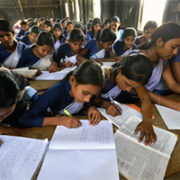 Sanitation, Water
Sanitation, Water
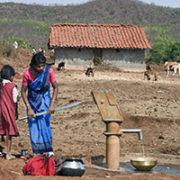 Education, Population, Sanitation
Education, Population, Sanitation
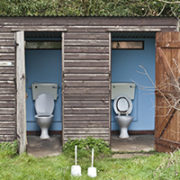 Sanitation, Water
Sanitation, Water
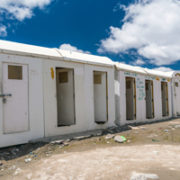 Sanitation, Water
Sanitation, Water
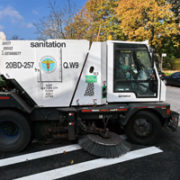
Top journal articles on sanitation reveal new policy insights

An examination of the published journal articles on development economics reveals a striking pattern—very few are devoted to the analysis of sanitation interventions and development. In a recent systematic review of all sanitation-related articles from the top-12 highest-ranking journals on development economics (Revilla et al. 2021), we attempt to understand the linkages between sanitation and development based on current qualitative and quantitative empirical work.
Does sanitation access improve schooling outcomes for girls and boys?

All the sanitation improvement projects and investments over the years beg the question of whether we have seen a significant increase in school enrollment and gender parity in education or not. While most empirical studies on sanitation focus on the relationship between sanitation and health, recent studies have now looked into the downstream impacts of sanitation on other development indicators, such as those related with education and gender.
No matter how poor you are, there is always a way to improve sanitation

The “out of sight, out of mind” attitude is proving to be critical for the slow progress toward target 6.2 of the Sustainable Development Goals (SDGs), focusing on global, safely managed sanitation. There is a general lack of awareness among users on the whereabouts of their poop, and the discussion on wastewater management is scarce and still a taboo topic in many parts of the world, leading to a lack of safely managed sanitation services. Besides the lack of demand hampering progress, the supply side of wastewater management is equally grim.
“Theory of change” as a solution to the global sanitation crisis

The most exciting part of my journey here at the Asian Development Bank Institute is that I get to meet inspiring leaders who have contributed immensely to helping solve the pressing challenges related to sustainable development. This time it was an interaction opportunity with the world-renowned “Mr. Toilet”, i.e., Mr. Jack Sim. If it were not for the efforts of Mr. Toilet and the World Toilet Organization (WTO), the United Nations would not have recognized 19 November as World Toilet Day, an effort by the global agency to mainstream the discussion on wastewater.
The sanitation economy: Digging for treasure

In both respects, sanitation is deeply embedded. Grids of sewer pipes have been fixed into the surface of cities in the developed world for more than a century, and it has become a strong and important part of most policy makers’ belief that this is how to provide sanitation. Or, despairing of such systems ever being built in developing countries, some have swung to the opposite view, advocating off-grid solutions, which, while less embedded in the ground, become an equally strong and important part of their proponents’ beliefs.
Evidence-based capacity building can inspire policy makers to accelerate sanitation interventions in Asia

National and local governments in Asia are facing significant challenges to effectively deliver access to sanitation, as well as to properly collect, transport, dispose of, and treat fecal sludge. Actions taken by governments at present have been to implement large-scale sewer networks, which are prohibitively expensive, and which take years to plan and build. To address the growing challenges and requirements of sanitation, many cities are using a combination of on- and off-site sanitation solutions provided by a range of service providers comprising civil society partners, private companies, and municipalities or utility companies.


Search
Subscribe / Connect to Asia Pathways
Subjects
- Agriculture and natural resources
- Blog
- Capacity development
- Climate change
- Economics
- Education
- Energy
- Environment
- Finance sector development
- Gender
- Governance and public sector management
- Health
- Industry and trade
- Information and Communications Technology
- Infrastructure
- Miscellaneous
- Population
- Poverty
- Private sector development
- Regional cooperation and integration
- Sanitation
- Social development and protection
- Transport
- Uncategorized
- Urban development
- Video Blog
- Water
Recent Posts
- Navigating Linear Transport Infrastructure Through Conservation Landscapes
- How Are Technology Trends Shaping the Future of Insurance?
- Securing Asia’s Future Through Soil Health: Why It Matters and What Must Be Done
- Silent Struggles: Advancing Women’s Mobility with Public Transportation in Asia
- Mind Your Neighbors: Measuring Shrimp Farm Spillovers




Recent Comments